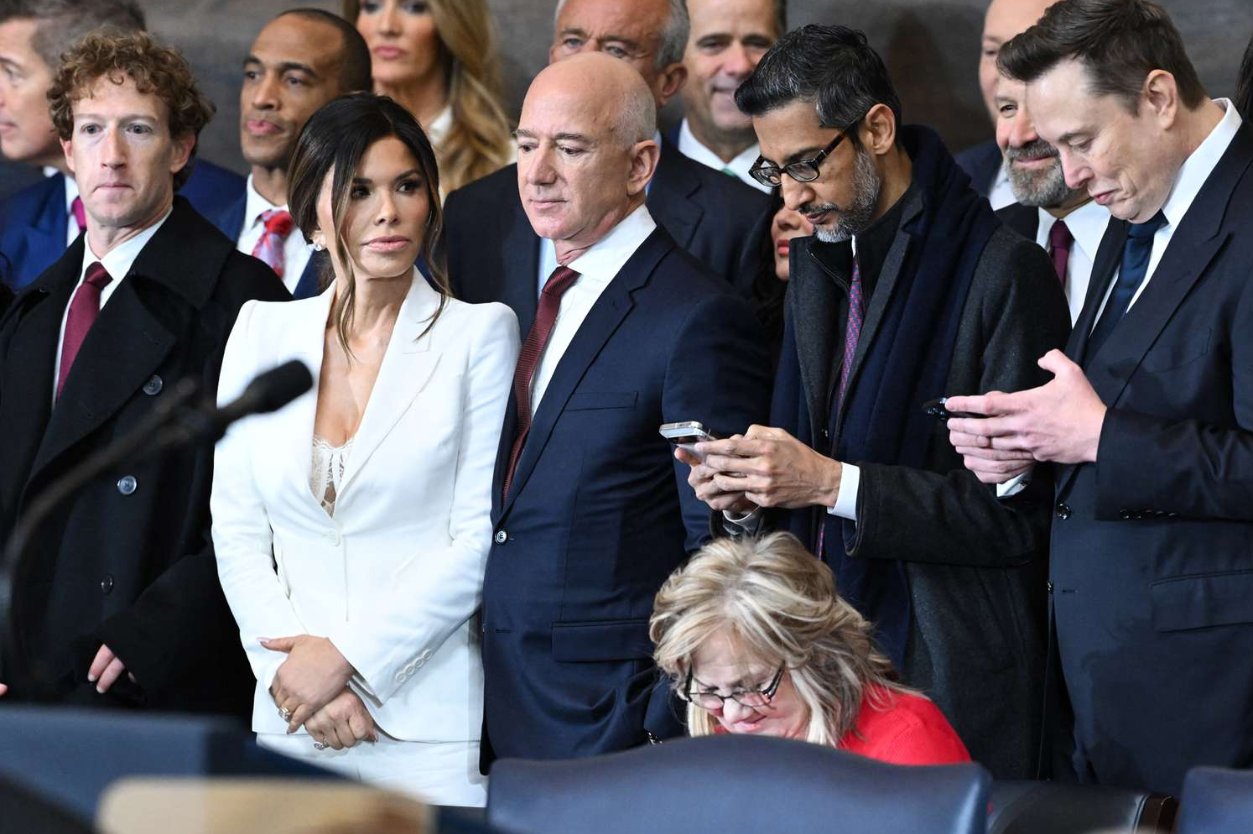Tech Oligarchy and Political Influence: How Big Tech is Changing Global Power Dynamics
The Rise of the Tech Oligarchs: How Musk, Zuckerberg, and Bezos Are Reshaping Political Power

For decades, the blueprints for the tech billionaire were drawn by figures like Bill Gates — visionary founders who created empires through innovation and, for all their enormous wealth, largely acted on the fringes of direct political power. But a fundamental change is afoot. Today, a new generation of tech moguls — Elon Musk, Mark Zuckerberg, Jeff Bezos and others — is not only shaping industries; they’re embedding themselves, aggressively, in the very upper echelon of government, media and policymaking. Everything is becoming clearer: from the emergence of a tech oligarchy to the clout of political influence, to what we can expect in the way of democracy and corporate governance in the future.
The New Power Brokers
Musk and his fellow billionaires have taken a much more confrontational tack to exert influence, unlike Gates, whose efforts have largely stuck to philanthropy and global health. But Gates himself has not been entirely apolitical. He has weighed into issues from education reform to climate policy to global health funding, at times pushing for particular policy changes. The difference lies in visibility and approach — Musk tends to engage in high-profile political conversations, and Gates works out of view.
Elon has actively built ties with right-wing players, promoted incendiary political debate on X (formerly Twitter), and portrayed himself as a foe of the traditional media and regulatory scrutiny. Zuckerberg, who once declined to take a public stand, wields outsized power over the flow of information on Facebook and Instagram, influencing public opinion in ways that are hard to measure. Bezos, for his part, owns one of the world’s most powerful newspapers, The Washington Post, providing him with an outlet into political conversation.
This change is not just a matter of personal ideology — it’s a matter of power. Though billionaires have long tried to exert political power, the age of the internet allows them to gain direct, unfiltered access to hundreds of millions of people. What we’re seeing is a huge shift from previous epochs in the relationship between the public and the press, and in the institutions involved in mediating discourse. And with Donald Trump’s return to power, this alignment has become more pronounced, as a number of these figures now enthusiastically embrace—or at the very least, chummily court—his administration. This growing tech oligarchy and political influence fuels fraught debate(s) about unchecked corporate power and its influence on policy-making.
Gates: The Reluctant Outlier
By contrast, Bill Gates finds himself in a weird spot. Once a symbol of corporate ruthlessness, Gates now seems positively steady in temperament when compared with the younger billionaires who are hatching today’s world. He still holds enormous sway over public health and climate initiatives, among other things, but his approach — at least so far — doesn’t lean confrontationally. His recent dinner with Trump at Mar-a-Lago — at which he pressed the president to continue funding global health programs — underscores his strategy: Working within power structures rather than trying to seize control of them.
But Gates does not have his eyes closed to the change that’s happening in his midst. Although he stops short of rebuking his colleagues, his cautious answers suggest he is far from comfortable. But there’s reason to wonder whether this is really an unprecedented shift or a new wrinkle in the return to historical power relations. Business leaders have been large and in charge for centuries in shaping policy — from media moguls like William Randolph Hearst to industrialists like Henry Ford — which suggests the present moment is more evolution than revolution. The rise of the tech oligarchy and corporate influence in politics is simply the latest iteration of elite power shaping governance.
The Future of Tech’s Political Grip
As tech titans grow in wealth and influence, so too does their ability to shape policy, public discourse and even democratic processes. Their power over digital platforms gives them the ability to amplify certain voices, while silencing others — power that has prompted a fierce controversy. Critics claim that this gives them an unchallenged monopoly on information, though for those who counter this, they can at least lean on governors and alternative media sources to provide balance.
The question is not whether tech billionaires will continue to wield power — it’s how far they will go. Gates may be a throwback to an earlier model of engagement, but Musk, Zuckerberg and Bezos are among the figures who will settle on the new template: a future in which tech leaders won’t just be industry overlords but will be central figures in the governance itself. Yet regulatory pressures, media scrutiny, and evolving political landscapes could ultimately restrict their reach.
As a new reality takes shape in the United States, the greater challenge lies in establishing where power begins and ends. Are we facing an age in which a few powerful tech leaders determine our near future, or is this just the latest version of the old parade of elites enhanced by new technologies? We need to look deeper at how power, wealth and governing play out in the digital age, as tech oligarchy and political power grow.
Follow us on WhatsApp, Telegram, Twitter, and Facebook, or subscribe to our weekly newsletter to ensure you don’t miss out on any future updates. Send tips to editorial@techtrendsmedia.co.ke


